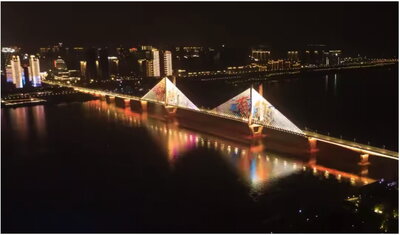
Global Voices on the Pandemic: Notes from afar is IGI's contribution to the global story of COVID-19. Giving a voice to the personal stories of our friends and colleagues throughout the world, we are able to find the common ground and see how much we share in our day-to-day lives through the lenses of these extraordinary events.
The University of Illinois is part of a global community including students, scholars, and artists. All of us are experiencing the pandemic in different ways shaped by culture, the situations of our societies, and our economic and political realities. At the centers and programs in the IGI, we have reached out to friends and colleagues around the world to ask them to share their experiences with us. Below are the accounts we are receiving from our network of friends and colleagues.
Published 24 April 2020

Anrong Hu was a visiting scholar with the Center for East Asian and Pacific Studies studying population policy and female employment in China. She is part of the Department of Business Administration at Huazhong Agricultural University, China.
Guangzhou, People's Republic of China
My family and I left Champaign and I planned to head back home to China on March 25, 2020. The flight route was from Chicago to San Francisco and then to Guangzhou, Peoples Republic of China.
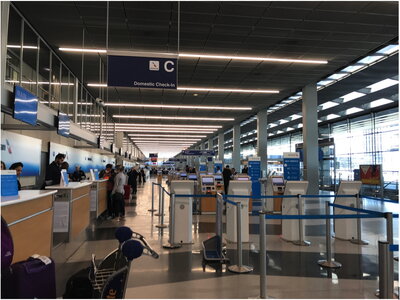
It was hard to buy international flight tickets because of the COVID-19 epidemic. I received the flight cancellation notice the morning of departure, but the official website of American Airlines showed the flight was still scheduled. We went to the Chicago Airport with great anxiety. There were very few people at the airport since most flights were cancelled. Fortunately, our flight was on time and not cancelled after all.
After three hours of waiting, we successfully boarded the plane to San Francisco. To my surprise, the staff of the Chicago airport didn’t wear mask, and flight attendants who distributed food and beverages also had no protection. Maybe they didn’t care that the cumulative number of coronavirus diagnoses in the United States was close to 60,000.
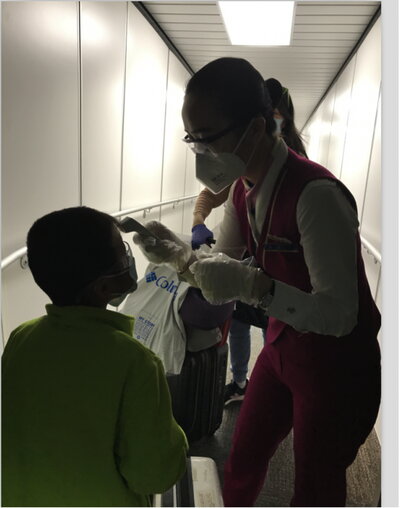
In contrast, China Southern Airlines which we transferred to in San Francisco, had a strict inspection policy. We were required to test our temperatures three times before boarding. All employees wore masks, gloves and goggles, and food was packed and placed on each seat. All passengers were required to share their health status. Body temperature was measured every four hours during the flight from San Francisco to Guangzhou. The passengers whose temperature exceed 37 degrees would be taken to the quarantine area at the rear of the aircraft.
We arrived at Guangzhou Baryon International Airport in China at 6:05 am Beijing time on March 27. All passengers were required to do nucleic acid testing at Guangzhou Customs. The staff in protective clothing took us to the bus and went directly to the quarantine hotel.
Fourteen days of quarantine life started: we were moved to an isolated room, given nucleic acid tests, and temperature measurement.
I authored this on April 8, 2020, an important day for my hometown of Wuhan. Wuhan is unlocked after a lockdown of 76 days. The Airport and train stations area able to reopen and restart so that I can take the high-speed train home the day after tomorrow when I finish the quarantine.
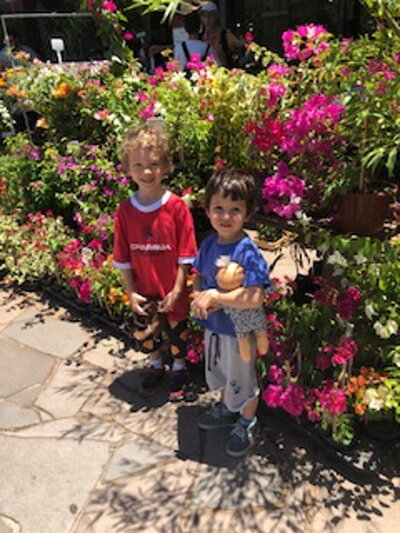
Arabela Campos Oliven, Professor of Sociology of Education at the Federal University of Rio Grande do Sul, Porto Alegre Brazil. Visiting Scholar at the Lemann Institute for Brazilian Studies of the University of Illinois at Urbana Champaign, 2016-17.
Porto Alegre, Brazil
During the coronavirus pandemic, schools are closed and children, prevented from meeting their classmates and beloved people, barred from frequenting parks and parties.
TV news and adult conversations circulate with the information that we are in “war” against an “invisible enemy” and that children are the main transmitters of the virus, since they may be contaminated, without presenting symptoms and have no notion of social distancing.
How do children process this information?
I would like to share an experience.
I have two nephews who are 3 and 5 years old.
Due to the quarantine I had to change the way I relate to them.
On what I wrote:
“My dear, Frederico and Camilo
I would like you to guess:
Yesterday, your uncle Ruben cried a lot.
It was neither of joy, nor sadness or pain.
Guess what the reason was.
I made a video to prove, that I will send
afterwards.”
They answered, in audio, the possible causes of the crying:
Happiness, homesickness, and death.
I then realized that the happiness of being at home in a more intimate relationship with the parents, blends with the feeling of longing of being deprived from contact with other people they miss and the confusion that is understanding the meaning of death, when one sees images with more death bodies than coffins.
I sent them the video I had promised. They were disappointed for not having gotten it right.
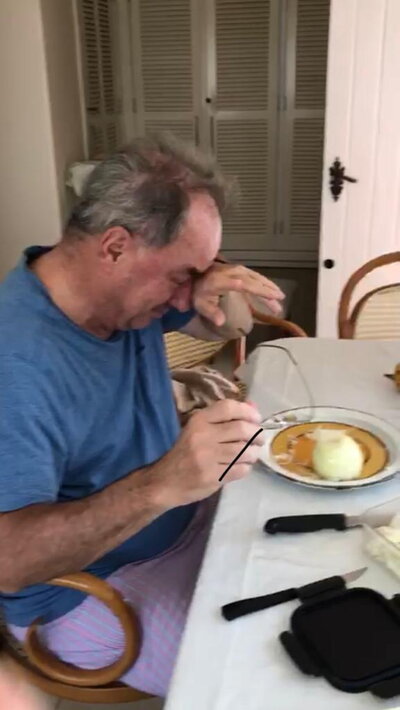
I answered,
“You couldn’t really guess that Ruben, on a beautiful Sunday morning, would be at home peeling onions.
But when I sent the video, you soon realized.
I learned with your answers.
We cry, indeed, of happiness, nostalgia and fear that something bad may happen to us.
But as the saying goes:
There is no good that lasts forever and there is no harm that never ends.
We can cry of joy or sadness and even peeling an onion.
Ruben and I are in quarantine and taking care of ourselves. He has worked a lot.
Another challenge for you.
Imagine what he has been doing at home.
I will send videos. Kisses”
Published 17 April 2020
The author of this piece prefers to remain anonymous given their position in an Iranian public university and that government’s strict attempts to control information.
Tehran, Iran
How I affected by COVID-19 and recovered
It all started on my bus trip to Tehran on the 5th of March to conduct some personal business. With this coronavirus worldwide and making international news, I bleed with fears continuously on this trip, but Allah will protect me I kept silently praying. On my journey I can see the nervous passengers wrecking smiles and their anxiousness to reach Tehran. All you can see are facemasks and gloves without much socializing as individuals restrained themselves.
We arrived in Tehran within fifteen hours. I disembarked the bus with great relief since I came here to run some errands. My goal is to leave here free of any illnesses especially from this pandemic they call COVID-19. Once my business was over, I prepared for my return to Birjand on the 6th of March as to release myself from such hustling business activities.
The trip back was an entirely dull atmosphere and scary due to some passengers coughing and sneezing, but with great care and caution, I kept myself wide awake all the way back. However, after reaching the bus terminal, I hurriedly got a taxi home finding myself coughing and sneezing to which I started to get very concerned about this virus.
Suddenly, I felt chills in my body and feverish. When I reached home I took a cold shower and then drank some lemon & ginger tea to soothe my body, then I lied down to rest. I felt totally different with constant coughing, sneezing, high fever, and aching body pains so I called my mother since I lived alone. She told me to go to the nearest hospital so I hung up and prepared myself to go.
I drove to the hospital, but was met with a massive crowd of people seeking medical attention too. Then suddenly I felt like I was about to take my last breath so I frantically began blowing on my car horn as hard as I could to capture the attention of those waiting around. Due to my swift action, a medical team was alerted by the crowd and rushed to my aid taking me to the emergency room as I heard voices and felt hands lifting me onto the stretcher.
I never knew I was unconscious, but when I was awakened, I felt revitalized as I began to see myself on oxygen and an IV. My doctor came into the room to discuss the x-ray, blood samples, and urine tests they needed to conduct and to which I totally agreed.
The results came back a few hours later to which I received sad news that I am positive with COVID-19 and will be placed in an isolation room, monitored and treated with trial medicines to reduce the fever and to clear the lungs to which in their diagnosis was not in the danger zone but repetitive testing will be carried out for the duration of the week to see if the situation improves or worsen.
I got so scared that I requested them to call my mother immediately, but was told my family was here and kept asking questions on my prognosis. As the days and nights passed my condition became better and I felt the healing differences in my body. On the 10th of March, I was given the bright and precious gift of hope, my health improved. Just the thought of knowing I would continue living had tears falling from my eyes.
On the 19th of March, I was released from the hospital with a clean bill of health recovering from COVID-19. I was met by my family for the first time since hospitalization.
I finally was able to re-enter the safe zone which was society. My family and their great love surrounded me for weeks while at home. My heart burst open with tears of happiness when my family surprised me with a visit from UAE to be with me and help nourish me back to better health.
I say this to everyone out there, for me, my family symbolizes unity and strength. When a link is weakened or broken, true families know and understand that the remedies are care and love. Care and love make us closer as well as stronger forever. Somedays I can't smell like before I had COVID-19, but I have life! Please stay safe by following all required precautionary measures.
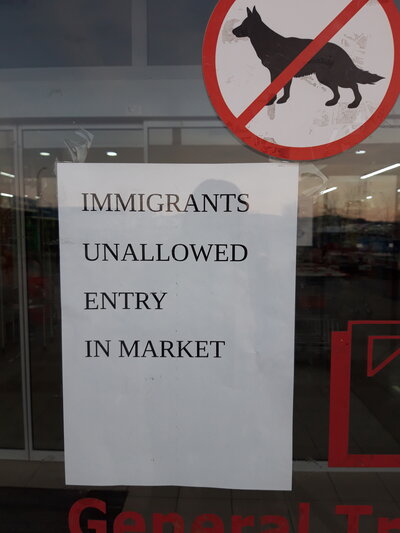
Elissa Helms is Associate Professor in the Department of Gender Studies at the Central European University. Trained as an anthropologist, her work has focused on Bosnia-Herzegovina through topics of gender and war violence, nationalism, NGO activism, and most recently humanitarianism, race, and belonging on the border with the European Union.
Bihac, Bosnia-Herzegovina
Bihac, Bosnia-Herzegovina, a small town on the border with Croatia and therefore the European Union: I’m an anthropologist studying the range of local responses to this area’s having become a bottleneck for several thousand migrants, refugees, and other people on the move hoping to cross the border into a western EU country. Because of anti-virus measures, around 3,000 people have been closed into camps for a month now, while several more thousand are living crowded into abandoned buildings without water, food, or information about the pandemic, much less the required masks and gloves. Social distancing means little to them – they have bigger problems as they continue to cross the border and get violently pushed back without belongings or money. Meanwhile, hundreds of Bosnians who work abroad have come back and are now stuck in quarantine tents at the border. Suddenly these conditions are deemed unsuitable for human habitation, especially because these are “our people” rather than migrants. Those who oppose the presence of migrants have added another layer to their complaints – now migrants are flouting the anti-virus measures. While we’re trapped in our houses (and those over 65 and under 18 cannot go out at all) they wander around wherever they want! Actually, they cannot go just anywhere – many of the shops that are still open now forbid entry to migrants because of the virus, creating an extra burden on local volunteers struggling to supply migrants with essential food and supplies. This is a weird time to be an ethnographer as I watch the precious sabbatical time I won’t get again soon tick away without being able to do the interviews and site visits I had planned, when those valuable chance encounters and small talk have all but disappeared behind our masks. But I still follow social media discussions, take part in neighborhood dynamics (from across the fence), and continue volunteer work with migrants both inside and outside the camps, taking precautions for the virus. I always emphasize to my students that ethnographers must be ready for the unexpected; I’m having to remember my own advice every day now.
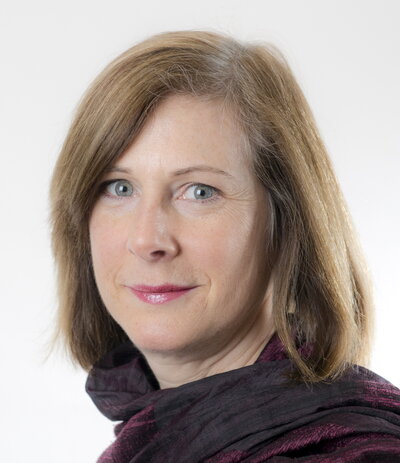
Dr. Debbie Schachter is the University Librarian at Capilano University in North Vancouver, British Columbia, Canada. Debbie is a member of IFLA’s Library Theory and Research Section, and is Chair of the OCLC Global Council and Chair of the OCLC America’s Regional Council. Debbie also teaches at the UBC Information School and the Langara College Library Technician Program.
British Columbia, Canada
Our last day of work on site at our teaching university in British Columbia, Canada, was Wednesday, March 18th. Even though we had been watching the progress of the COVID-19 wave – first to the west, across the Pacific, and later with shock at the pandemic’s impacts in an unprepared Europe – it still seemed hard to comprehend. As a public institution, we worked in concert with our Ministry of Higher Education and other institutions to move courses and services online for the last few weeks of the semester. Through all of this, I have been immensely impressed by the resilience of our library’s 22 employees who have responded to this challenge by learning to work remotely with colleagues, supervisors and others, through new communication tools. As the UL, I feel it’s important to ensure we are connecting with all employees regularly, to acknowledge and try to reduce the feelings of anxiety and isolation that are sure to be affecting everyone to different degrees. We seem to be holding more meetings than ever, and chatting and sharing photos to maintain our sense of community. We continue to progress with various projects that ensure employees are involved in a range of activities, such as policy and procedures development. I am planning to hold our strategic planning session via MS Teams, and so it will be an interesting challenge to try to engage all employees through that platform. My practice is to create as much structure and routine as possible, for myself and my employees, to ensure that we continue to be a functional and supportive team, throughout this challenging time.
Published 14 April 2020
The following voice comes from CLACS-affiliated Anthropology student Claire Branigan. She talks about COVID-19 in Argentina. Her story can be found here: Argentine Policies Aim to Save Lives Over the Economy
Published 10 April 2020
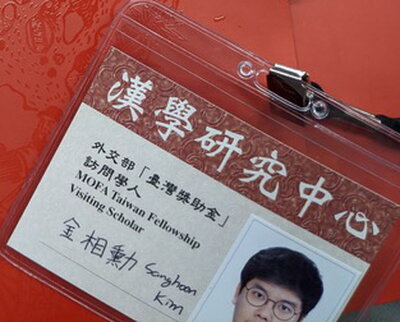
Sanghoon Kim is a Ph.D. candidate in the Department of Political Science at the University of Illinois. His dissertation research focuses on voting behavior for political parties that are linked to and frequently reference back to an authoritarian past. He was selected as a recipient of the Taiwan Fellowship from the Ministry of Foreign Affairs of Taiwan and the CEAPS Graduate Student Dissertation Travel Grant this year.
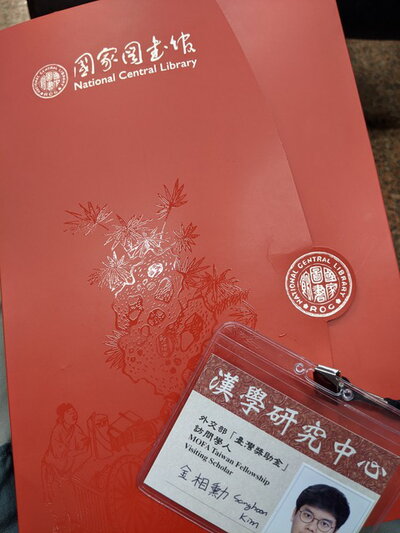
Taipei, Taiwan
At first, it was nothing more than some irritation like my fogged-up glasses from wearing a face mask. It was early February in Taiwan where I visited as a recipient of the Taiwan Fellowship to conduct field research for three months. It was unusually warm in Taipei, around 25 degrees Celsius, and I was following my empirical plans rather than feeling threatened by the outbreak of the coronavirus. Through January and February, I was gathering information about voters’ perceptions of the recent election, political parties, and former political leaders through focus group meetings and elite interviews. I visited local scholars in Taipei and southern cities and tried to get as diverse perspectives on Taiwanese politics as possible. The coronavirus was still a “China” thing then and it had not affected my research yet.
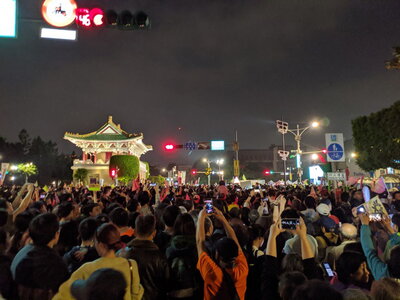
Then, things started to get worse in South Korea. I began thinking about suspending my data collection there which was another key research site for my dissertation. Data collection in Taiwan also started to be constrained, as people become warier about the virus. Then, the outbreak struck the US hard and fast. The University of Illinois decided to move all classes online and also advised students abroad to return to the US. So, I am back in Champaign, following the self-isolation order, and struggling to continue my research. As of this moment, it is uncertain when I can travel back to Taiwan and Korea and resume data collection, but I am planning to continue empirical research virtually with the help of my local contacts. I have shifted my priorities and it was not easy.
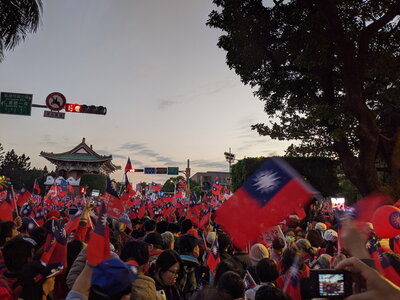
Then, I recall what I read online that I am lucky to concern only about my research when many others worry about their ill family members. So, I appreciate for feeling blessed and hope anyone who reads this feels and remains the same way until we beat the virus.
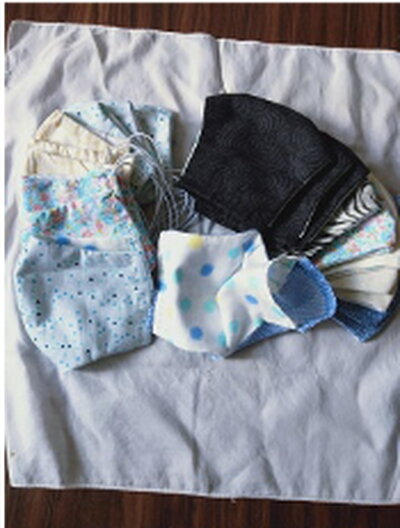
Yasuyo Inoue is a Library Science professor at Dokkyo University in Saitama, Japan and had spent from September 2019 to January 2020 at the Center for Global Studies as a visiting scholar.
Saitama, Japan
Dokkyo University finally decided to delay the beginning of a new academic year from April 1st to May 11th. Other universities in big cities are also extending the beginning of a new academic year, and some like Kyoto University are preparing all classes to online basis.
As far as I had better staying at home for at least 14 days (not mandatory) after coming back from Wellington, New Zealand, where I had spent almost two months at Victoria University at Wellington, School of Information Management as a visiting scholar after University of Illinois at Urbana-Champaign. Even without dead coronavirus patients, NZ did a whole national lockdown. I was able to get on the final flight from NZ to Japan.
Now I'm at home, making hand-made facemasks to kill boring time. I am sewing several facemasks with a pocket which I can put a piece of bleach-washed gauze cloth or nonwoven fabric. Not for protection against coronavirus but to protect my brother against pollen-allergy. Here in Japan, no facemasks are sold at stores, no adequate cloth at handcraft shops, but I found some in Wellington and brought back to Japan. I hope they work!
In Japan, there is no government lockdown, no order, but “asking” the public not to go outside on weekends in big cities like Tokyo or Osaka, even as the number of coronavirus patients is increasing day by day. All stores, restaurants, cafes, even pachinko-playing places are opening. It's kind of a scary situation, but still, the Japanese government hesitates to do something. I wonder if policy makers consider economics and business mainly, not about the health of the public.
Published 3 April 2020
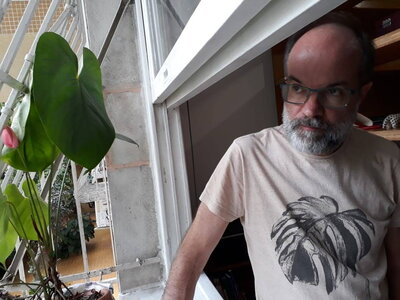
Robert Wegner is a historian of science at Brazil’s national public health institute, Fiocruz. He spent the 2019 academic year at Illinois conducting research on early 20th century genetics, looking at the work of Eugene Davenport.
Rio de Janeiro, Brazil
In many cities in Brazil, we live under social distancing measures that follow World Health Organization guidance and actions by mayors, governors, and the Brazilian Ministry of Health, in an effort to avoid the tragic impact COVID-19 has had in Italy.
Our president, right-wing populist Jair Bolsonaro, has gone in the opposite direction : continues argues that Brazil "cannot stop," and has sought to block local governments from taking social distancing steps, and said this is just a "little flu." This opposition to policies intended to slow the spread of the virus has caused Bolsonaro to quickly lose popularity.
Every night at 8pm Brazilians hold protests called panelaços. People bang pots and pans at their apartment windows or balconies. Some shout out against the government, and some play protest songs, all of this while remaining inside their homes.
Around the world, scientists urge caution for the elderly and warn against the high reproduction coefficient of the coronavirus. In Brazil, epidemiologists warn that the virus can become a powderkeg in communities with poor sanitation. Our economists also warn that we live an unprecedented situation that demands a different outlook than the one we previously had : in order for the economy to have a future, we have to help people stay healthy, safe and, most importantly, alive. This requires that healthcare must come before business interests. The president seems unable to grasp this.
Currently, I'm working from home and my family bangs pans every evening in unison with neighbors, some who we know, and others we do not. In this modern and ancient collective ritual, we express our need to get far away from two viruses that spread the death: COVID-19 and "bolsonarismo."
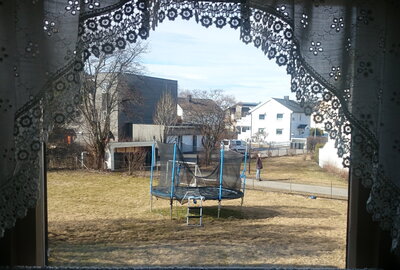
Mahmood Khosrowjerdi is a senior academic librarian (førstebibliotekar) at the Inland Norway University of Applied Sciences (Rena, Norway). Mahmood has a PhD in Library and Information Science (LIS) from the Department of Archivistics, Library and Information Science at the Oslo Metropolitan University (Norway). In his Ph.D. project, he investigated the role of national culture in trust formations of users towards online health information.
Rena, Norway
Friday, March 27, 2020
It's 8:00 o’clock. After breakfast, my son goes to school. The school that is now just a room, and his classroom is a digital screen of an iPad. It has been about two weeks that most government agencies, including schools, universities and higher education centers in Norway, are doing teleworking. I've been lounging on the couch and staring at one of the students' emails which is a question about how to cite a translation work. My cellphone rings. Is my mom. She talks about the current unfavorable conditions in Iran, the death toll of Coronavirus, and the lack of disinfectants and masks in Iran. In the end she is very worried about Coronavirus coming to Norway and advising me to stay home and keep safe. I say goodbye to my mom and try to focus on the daily routine again. But the mom’s call makes me curious again to browse some reputable sites to see if Coronavirus incidence and mortality rates have been diminished! The casualty statistics worry me. I am not breathing normally. I’m feeling alone and isolated. I come to my wife's voice saying that we have no sunflower oil and that we must eat bread and sausage for lunch. I reply the student's email. Next, I read a chapter of an academic book. How long these days are. I am going to turn off the laptop, so I get a new email. From my boss:
Hi Mahmood!
I think of you and hope you and your family are doing well! It is not easy to be far away from your parents in such an exceptional situation. I hope that part of your family, who is not in Norway, is doing well too! I know it can be hard to be far away now.
Have a nice weekend! Anna
My boss's sympathy gives me a special euphoria. I'm feeling much better now.